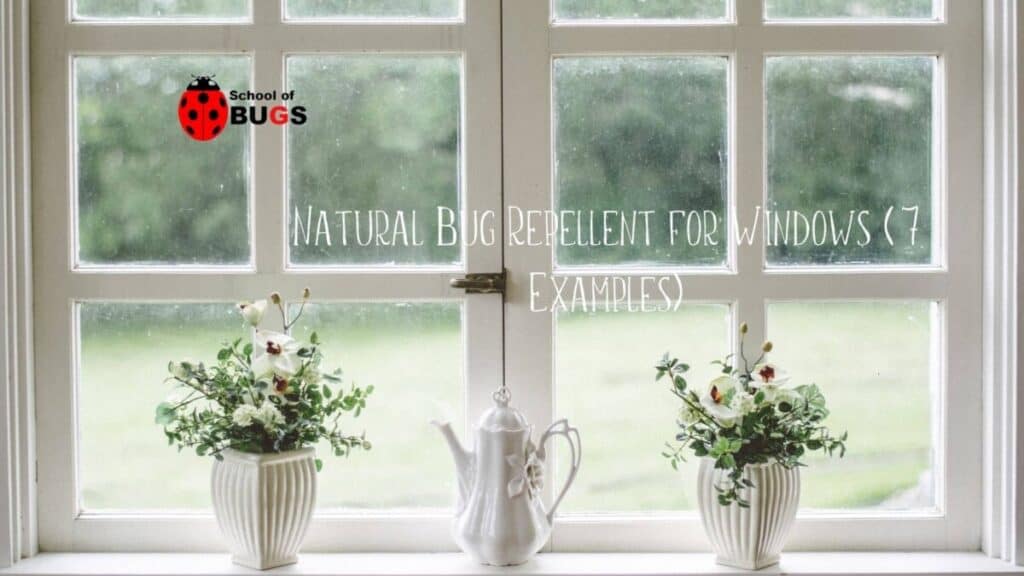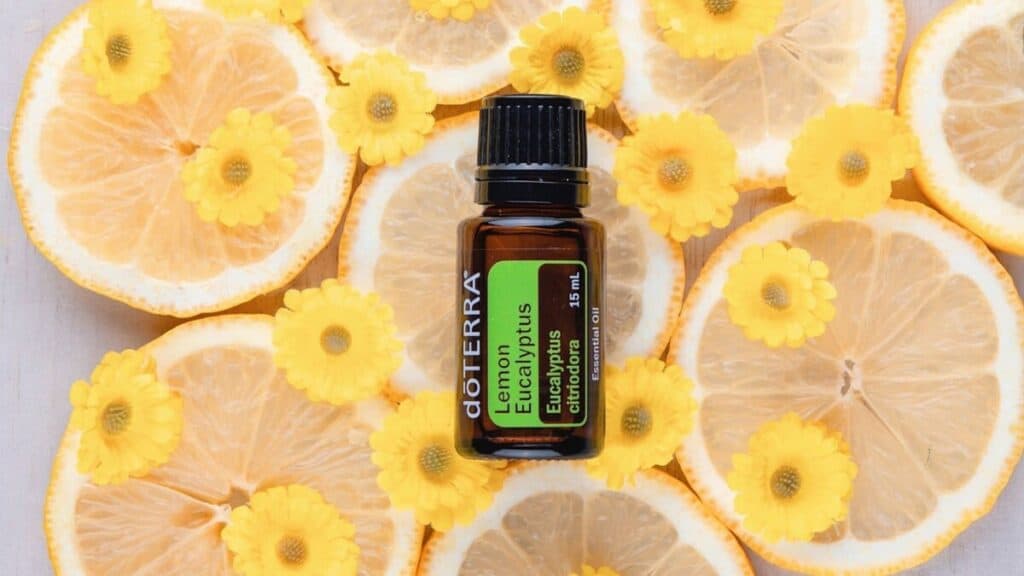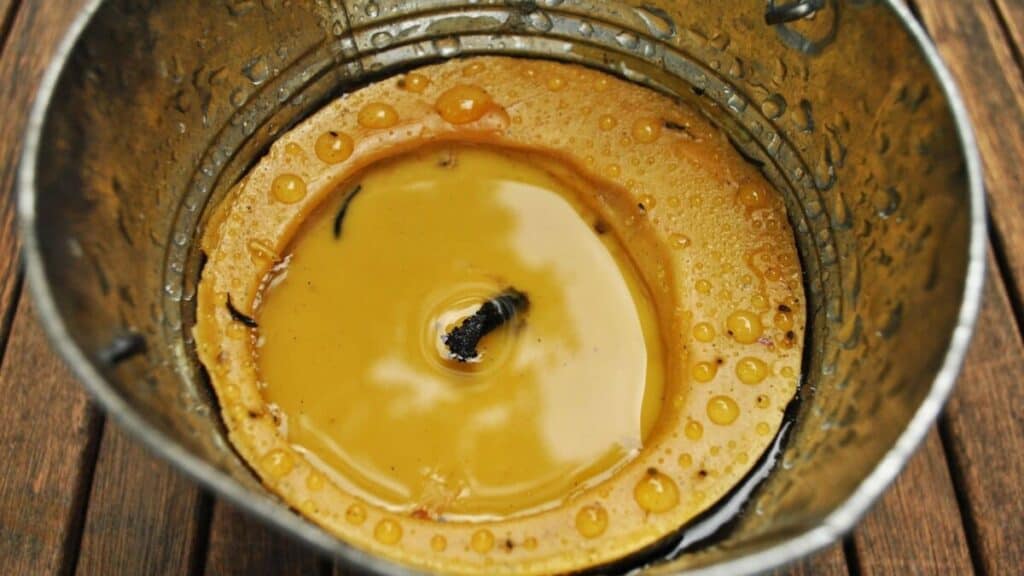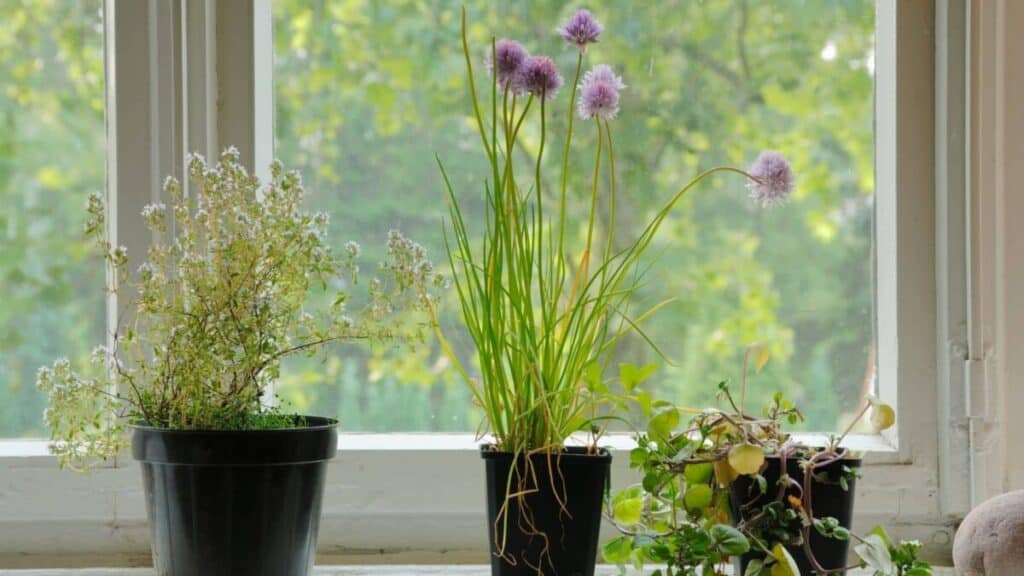
Is there anything more annoying than opening a window on a wonderful summer night only to find the whole cast of Bug’s Life entering your home.
The most surefire way of stopping that? Using a bunch of toxic chemicals. But does it have to be that way? No, it doesn’t! Keep reading to find out about 7 awesome natural bug repellents for your windows.
#1 Peppermint Oil
One of our favorite ways to keep bugs out of our windows is peppermint oil. Peppermint is one of the most used herbs around the world, due to its many amazing properties.
But one you might have not known about is the insect-repellent property of mint. Menthold, the main chemical compound found in plants from the mint family, along with other essential oils seems to be quite effective at keeping the bugs away.

Actually, not only does the smell of mint repel bugs, but mint oil was actually found to be able to kill various types of insects.
For example, when peppermint oil was put in water contaminated with mosquito larvae, almost all of them died.
Peppermint oil is known to be effective against mosquitoes, flies of all kinds as well as spiders and ants.
Peppermint Oil Bug Repellent Window Spray Recipe
What you’ll need:
- Peppermint oil
- A spray bottle
- Water
- Dish soap
Once you get your spray bottle ready, mixing up the insect-repellant oil is super easy. Simply fill the spray bottle with the desired amount of water.

Now, you can make the spray stronger or weaker, but a good measure is 5 drops of peppermint oil per ounce of water.
This will give you a strong-smelling spray that is guaranteed to scare off the critters. Simply add the peppermint oil to the water, and top with a drop of dish soap.
Shake well, and you are ready to use the spray.
The peppermint oil pest-repellent spray works when applied to window sills or window screens. You can even use it when cleaning your windows to add a layer of aromatic protection. For best results, spray often.
#2 Lemon Eucalyptus Essential Oil

While any eucalyptus oil can be helpful for fighting off bugs, lemon eucalyptus oil is the stuff. Lemon eucalyptus essential oil comes from a specific kind of plant, Corymbia citriodora.
Even though the name contains the word ‘lemon’, this plant native to Australia has very little relation to citrus plants. However, the smell is somewhat reminiscent of a gentler version of lemon.
Lemon eucalyptus oil is one of the most researched oils when it comes to natural bug repellents. According to some studies, it is just as effective as DEET for fighting off mosquitoes, and it is also known as a good weapon for fighting no-see-ums and ticks, for example.
Eucalyptus oil has a beautiful smell, so you’ll get to enjoy a pleasant aroma that will brighten up the room when spraying it on your windows.
As a plus, lemon eucalyptus oil can be used to create a bug repellent for your skin or in a diffuser to create a wonderful smell in your room.
Lemon Eucalyptus Oil Bug Repellent Spray Recipe
What you’ll need:
- Lemon eucalyptus oil
- A spray bottle
- Water
- Vodka or high-proof alcohol (optional)

Our lemon eucalyptus bug spray recipe is similar to the peppermint spray described above. For best results, add about 5 drops of oil per ounce of water, but you can experiment with the quantities to see what works for you.
You can add a shot of vodka or alcohol to the mixture too, or skip this step if you don’t like it. The addition of the alcohol will allow the oil to dissolve in the water better, so you won’t have to shake the bottle as vigorously before every use (still do remember to shake it a bit).
As a plus, your spray will have disinfecting properties so you will be able to use it to clean your windows too in a pinch.
#3 Citronella Oil Candles
Citronella oil is another favorite for repelling bugs. While it also sounds like it comes from the citrus family – it does not.
It is a type of grass native to Asia, belonging to the Cymbopogon genus. You’ll often also find it under the label ‘lemon balm’.

Citronella is known for lots of amazing properties, including an antifungal effect and the ability to treat parasitic infections.
However, the reason we chose it today is that it’s one of the most powerful natural bug repellents, and yes, it smells amazing.
Essential oil made from this plant has many uses. You can use it to make a window bug spray (look at the recipes for peppermint and lemon eucalyptus spray above and simply use citronella oil instead).
However, you might as well try something different: buying (or making) citronella candles and placing them on the window sill to keep the bugs away.
The downside of this method is that the candles will only keep the bugs away as long as they are burning. The upside – is they will create a wonderful atmosphere.
#4 Cedarwood

Cedarwood is another insect repellent that nature has given to us. While it might not be as effective against mosquitoes as peppermint oil or citronella, it’s a great weapon against fleas, ticks, moths, and various other insects.
As a plus, cedarwood and cedarwood oil is generally considered safe for humans (including children) and pets. That’s why it’s often used in natural insect repellent products.
As a mild (and decorative) version of cedarwood insect repellent, you might try using cedarwood chips. You can spread them around your house, on your window sills, and wherever else you find appropriate.
This tactic might be effective for stopping spiders and other creepy-crawlies from entering your house through your window, but for a really powerful defense, make a bug spray by mixing cedarwood oil and water (at least 5 drops per ounce of water or more).
Put this in a spray bottle and spray generously around your windows and do it often.
#5 A Herb Garden on Your Window Sill

Another way to reap the insect-repelling benefits of natural essential oils is to use the actual plants that the insects come from.
Basil is an all-time favorite in this regard. Basil is not only easy to grow but also very pungent and known for insect-repelling properties.
For best results, you might want to mix it up a bit and combine other plants known for repelling insects with your basil: lavender and rosemary are great examples.
When it comes to fleas, chrysanthemums are known to be really good at keeping them away.
#6 Diatomaceous Earth for Crawling Insects

Diatomaceous earth will not stop mosquitoes and flies from flying through your window, but it is actually quite effective against anything that crawls.
Diatomaceous earth is a safe, non-toxic, natural insect repellent. It’s basically dust made from tiny sea creatures known as diatoms.
This powder has the unique property to dry out and damage the exoskeleton of insects upon contact. If you’ve never tried using DE before, it can be hard to believe, but it does work like magic.
It’s known to be effective specifically against ants, cockroaches, silverfish, and bed bugs.
#7 Vinegar/Lemon for Ants
When we talk about insect repellents for windows, we usually have flying insects in mind. However, some of the most common window intruders are also ants.
And the problem with ants is that they usually come in great numbers. So how does one deal with ants coming through the window without using toxic chemicals?
Believe it or not, the answer is quite simple: just use vinegar. Simply take some white vinegar and spray it all around your window.

The spray should keep the ants away. Just make sure to cover all of the edges of your window. Otherwise, the ants could simply walk around the smelly areas.
Final Thoughts
Stopping the bugs from entering your windows with natural repellents is definitely possible. You might need to get tactical, though, and use the right repellent for the right kind of bugs.
There is a natural defense against every insect, but nothing will work against them all. Do try out some of these natural repellents and let us know if they worked for you!
Alright, that’s it for this article, here are a few hand-selected articles that you might also find interesting reads:
Keep Bugs Out of Your Apartment – Techniques That Actually WorkKeep Bugs Out of Firewood – Techniques That Actually Work
How to Get Rid of Wood Bugs Naturally
How to Get Rid of Pill Bugs in Potted Plants Naturally
Recent Posts
Tiny Black Bugs in Bathroom NO WINGS: What They Are and What to Do!
Finding tiny black bugs in your bathroom can be uncomfortable, to say the least. Especially if they are persistent, or they appear in very large numbers, which they often like to do. When it...
Tiny Black Bugs in Plant Soil - What Are They & What To Do About It
A short horror story: You get a new houseplant. You do your best to take care of it. You’ve ensured that it has the right soil, the right amount of sun, it gets enough water. And then one day, you...

